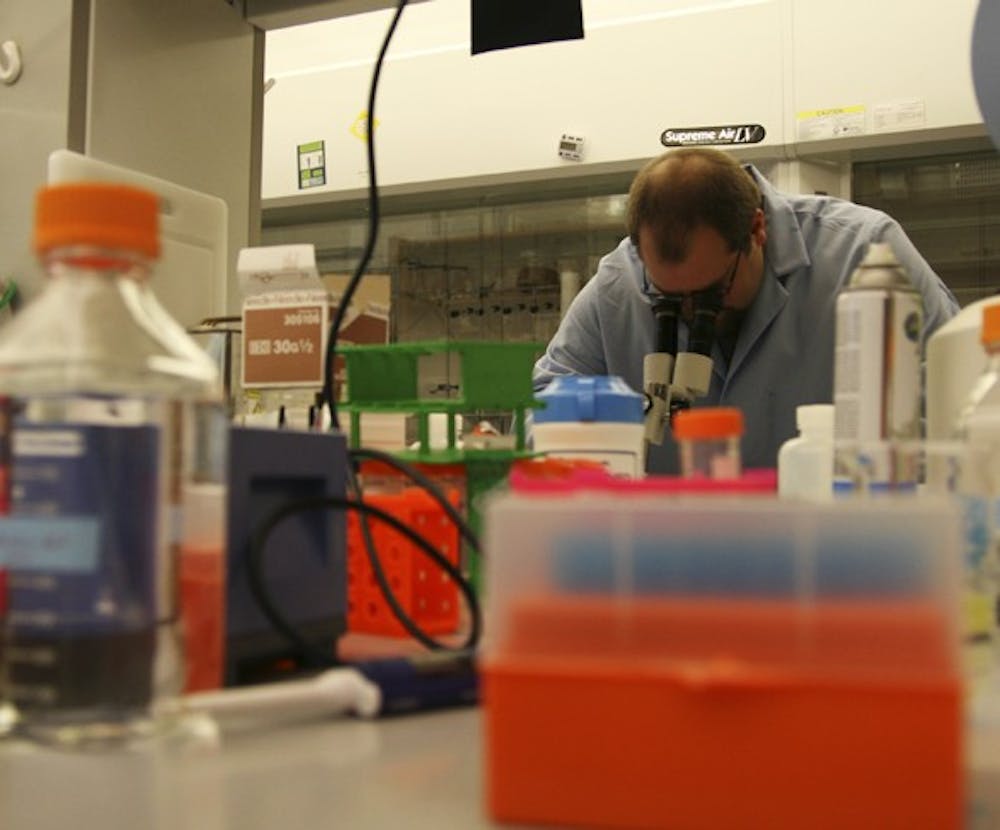Short on real blood?
Some UNC researchers are working on what they hope will become the next best thing.
Co-led by researcher and chemistry professor Joseph DeSimone, the University is in the initial stages of a project that has created mock blood cells that better mimic the real things — and last longer than previous versions.
Samples of the new blood particles tested in mice lasted 30 times longer than stiffer particles.
This week, the online Early Edition of the Proceedings of the National Academy of Sciences featured the team’s recent strides in mimicking several properties of actual blood, a process that could lead to more effective treatments of cancer and other life-threatening conditions.
Though the research is still in its preliminary stages, Mary Napier, a senior research associate, said the development of an artificial blood substitute “would have a huge impact on groups like the Red Cross or the military.”
A fully synthetic blood would be available for use in areas of need where human blood could be in short supply.
Napier said the research opens the door to a variety of possibilities. A true synthetic would alleviate issues such as storage or refrigeration. It would also eliminate worries about cross-typing or the immunological responses of recipients.
Tim Merkel, a graduate student who assisted in the research, said the team has a ways to go, but that their success with particles resembling red blood cells has been a cause for optimism.



